Stocks
anicap, anicaps, anime recap, anime recaps, anime recommendation, anime recommendations, animerecap, anirecap, arirang, arirangtv, korea, korean, manga cap, manga capped, manga collection, manga recap, manga recaps, mangacap, mangacaps, manhwa recap, manhwa recaps, manhwa recommendation, manhwa resumen, manhwa to read, manhwarecap, manhwareccomendation, movie recap, poor to rich manhwa, recap manga, recap manhwa, rich manhwa recap, trending, webtoon recap
prasadamit225566
1 Comments
Stocks Tumble Amid Slumping Industries, Political Unrest in South Korea, Air Jeju Plane Accident.

Stocks Tumble Amid Slumping Industries, Political Unrest in South Korea, Air Jeju Plane Accident.
The country‘s financial markets witnessed a rather torrid day, with disheartening industrial data, deepening political instability, and a devastating aviation disaster sending shockwaves throughout the nation. On Monday, December 30, 2024, the KOSPI index of the nation saw a tremendous 2.5% decline. This downward spiral reflects a combination of economic, political, and social pressures that weigh upon investor confidence.
Economic Weakness: A Protracted Industrial Slump

The greatest immediate cause for concern was the release of industrial output figures for November, which showed a 1.8% contraction. This is the third successive month of decline and merely reinforces fears that South Korea‘s economy is headed into stagnation. Manufacturing-the sector that drives much of the country’s economy-was hit particularly hard from a global slowdown in the demand for exports such as semiconductors, automobiles, and consumer electronics.
Weak industrial data add to concerns about the general outlook of South Korea’s economy. The increased prices of energy, the dwindling consumer expenditure, and the slowdown of China-the largest trading partner of South Korea-have compounded the issues. Analysts feel that the Bank of Korea’s further interest rate hike could make the economy condition harder, which may take long to recover for both business and consumers from this kind of slump.
Political Turmoil Amplifies Investor Anxiety
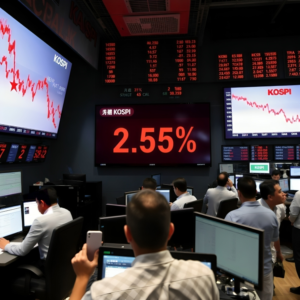
Adding to the economic uncertainty is South Korea‘s deepening political crisis. Acting President Han Duck-soo was impeached over allegations of corruption and abuse of power, leaving the nation in political disarray. His removal has left critical economic reforms and policy decisions in limbo, further unsettling markets.
The political instability has ignited riots in Seoul and other capital cities as the people argue over what the future will hold for the country. The uncertainty has shaken both the local and foreign investors, leading to an uptick in capital outflow.
The confluence of political and economic instability is a recipe for disaster for South Korea,” says Kim Ji-hoon, an economist with Daewoo Securities. “Investors are losing confidence in the country‘s ability to manage its challenges effectively.”
Jeju Air Disaster: A National Tragedy
A tragic accident at Muan International Airport on December 29 only serves to add to the sense of national crisis: a Boeing 737-800 aircraft operated by Jeju Air, traveling from Jeju Island to Muan, crashed on landing, killing 179 of the 181 passengers and crew members. This is the worst aviation disaster in South Korea’s history.
Early investigations
indicate that adverse weather conditions and mechanical failure may have led to the crash. The aircraft reportedly skidded off the runway before bursting into flames, leaving behind a scene of devastation that has shocked the nation. Questions are also being raised over the safety protocols of low-cost carriers, which have grown rapidly in South Korea over the past decade.
Impact on Jeju Air and the Broader Aviation Industry
Jeju Air, South Korea‘s largest budget airline, has watched its stock tank by 8.4%, an all-time low since the airline went public in 2015. The crash has not only damaged the reputation of this airline but also set consumer confidence in low-cost airlines back years. Analysts say Jeju Air faces lawsuits, regulatory scrutiny and potentially years of rebuilding the public image.
The ripples extend beyond the airlines into the general aviation and travel industries. Shares of other airlines, including Korean Air and Asiana Airlines, fell on concerns that regulatory changes might affect the sector and a reduction in travel demand. Travel agencies and tourism companies are also feeling the impact as the tragedy overshadows what is usually the busiest time of the year for travel.
Government Response: Mourning and Action
In response to the catastrophe, the South Korean government declared a seven-day period of national mourning. National flags are being flown at half-mast and other public events canceled as the nation struggles to grasp the extent of the tragedy. President Yoon Suk-yeol spoke to the nation, extending his sympathies to the victims‘ families and assuring an all-inclusive probe of the crash.
To avoid such incidents in the future, the government ordered a complete safety checkup of all airlines operating within the country. Transport Minister Lee Sang-min announced to tighten rules and regulations regarding low-cost carriers, more stringent aircraft maintenance checks, and advanced pilot training programs.
More Economic and Social Implications
This is a triple whammy of crisis – economic, political, and social in nature. The aviation crash has laid bare vulnerabilities at the heart of South Korea’s low-cost carrier growth. These airlines have enabled millions of South Koreans to take to the skies with ease, but their dramatic growth has also raised worrying questions about safety and the sustainability of the business models.
The political turmoil risks paralysing urgently needed reforms at a moment when the country can‘t afford delay. Key areas of change, such as tackling income inequality and further developing innovative high-tech sectors, may now be in danger of being put back into their boxes as parliamentarians deal with the latest crisis to hit the system.
Market Outlook:
Caution Lurks Underneath
Financial analysts are cautioning South Korea to tread carefully during this stormy period. A decline in the KOSPI reflects the general uncertainty about the country’s capacity to handle its problems. Foreign investors, who previously considered South Korea a relatively stable market in Asia, are reassessing their positions in the face of growing risks.
Some analysts remain hopeful of a recovery. “South Korea has proven resilient in the past, bouncing back from financial crises and geopolitical tensions,” said Park Min-seo, a market strategist at Hyundai Asset Management. “If the government can restore political stability and implement targeted economic measures, the country has the potential to emerge stronger.
For now, South Korea will face a long way ahead toward recovery. The country has to fight off immediate crises while taking steps that ensure sustainable growth in years to come. It‘s still to be seen if the nation would be able to rise up to its call. End.
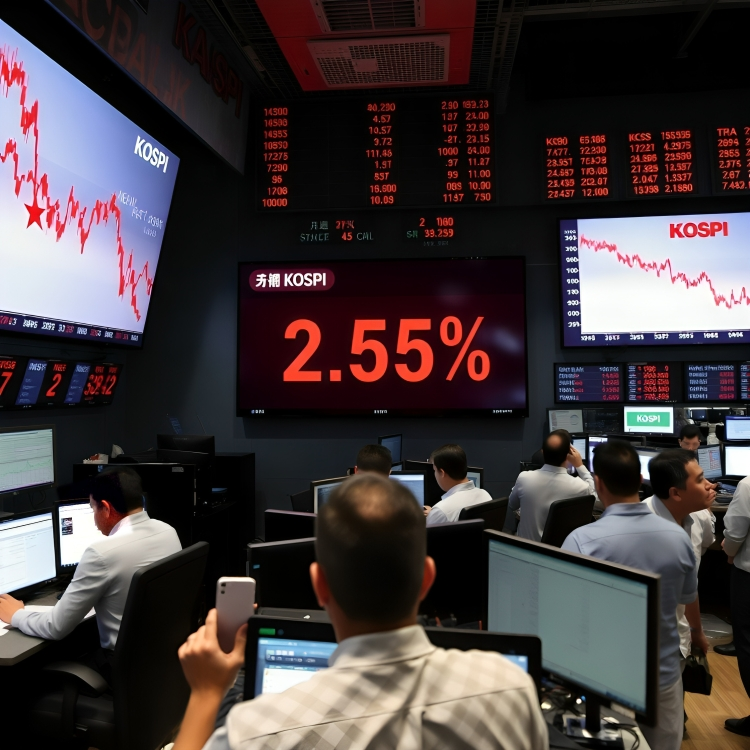
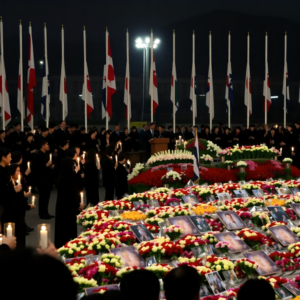










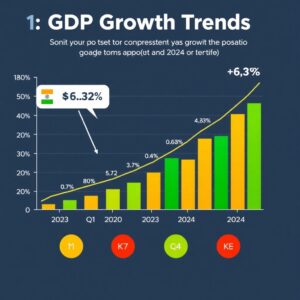





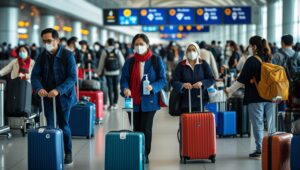


1 comment